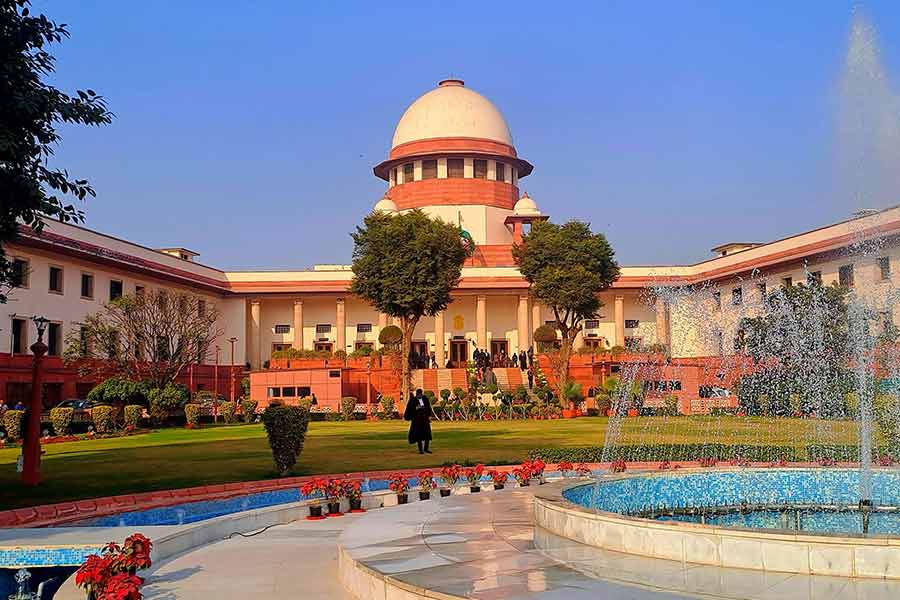The Supreme Court on Monday sought the response of the Centre, and the ministry of electronics and information technology in particular, on the constitutional validity of certain rules that empower the government to block the social media accounts of users for alleged objectionable content without giving intimation to the aggrieved persons.
The petition jointly filed by an NGO, Software Freedom Law Centre India, and its treasurer Mamta Verma, has challenged rules 8, 9 and 16 of the Information Technology (Procedure and Safeguards for Blocking for Access of Information by Public) Rules, 2009, which, it says, gives the government unrestricted powers to block social media content.
It argued that before blocking a social media post, the authorities must allow the aggrieved person to present a defence.
Appearing for the NGO before a bench headed by Justice B.R. Gavai, advocate Indira Jaising submitted that principles of natural justice were being violated in these cases as no notice was served upon the “originator” (persons who make the posts). Rather a notice is issued only to intermediaries such as X, Facebook or Instagram before blocking the content. The bench, which included Justice Augustine George Masih, wondered why an NGO should file such a petition as it was for an aggrieved individual to approach the court.
Jaising submitted that an individual is unaware that his/her account is blocked as the action has been taken by the authorities by involving only the intermediaries, which is a violation of fundamental rights. The bench issued formal notices to the Centre and the ministry seeking their response and posted the matter for hearing after four weeks.
The petitioners have challenged the constitutional validity of the provisions, arguing that rule 8, by making the issuance of a blocking request notice to the originator of the content optional, vests unguided discretion in the authorities who have now the discretion to decide whether or not to issue notice to the originator. This violates the originator’s right to be heard before their content is blocked, the petitioners said, adding that such action was arbitrary and violative of Articles 14 (equality), 19(1)(a) (freedom of speech) and 21 (life and personal liberty).
It was submitted that similarly arbitrary was the use of rule 9 as an emergency provision to block user content without any prior notification, leaving the originator with no mechanism of relief because of the lack of a notice, a reasoned order and an opportunity to be heard. The petitioners said this militated against the fundamental right to equality, freedom of speech and the right to life and personal liberty.
The petitions argued that rule 16 perpetuates a contravention of the principles of natural justice by withholding the supply of a reasoned order, notice or an opportunity of hearing to the aggrieved persons.










